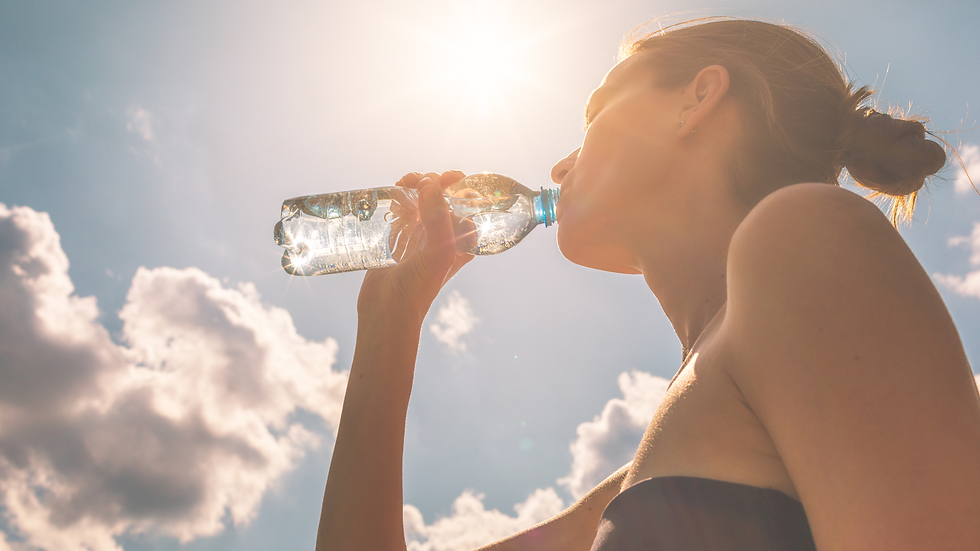The Water-Herb Connection: Why Your Remedies Might Not Be Working
- Jennifer Dillman
- 1 day ago
- 2 min read

If your herbs or supplements aren’t doing much, the problem may not be the product — it might be your hydration. Learn how water activates healing.
Herbs need water to work
Here’s something most people miss: herbs don’t work in a dry body.
Every herbal action — cleansing, soothing, stimulating, or rebuilding — depends on water to move it through the system. No matter how potent your tincture or capsule, if you’re dehydrated, the herbs can’t circulate, absorb, or “speak” to your tissues effectively.
Think of it like trying to send nutrients down a dry riverbed — there’s no flow.
Why hydration is the “carrier” for herbal intelligence
Water dissolves and transports the active compounds in herbs, delivering them to the cells that need them most. It also supports the very systems herbs are meant to help:
The liver detoxifies through bile and water-soluble waste.
The kidneys filter toxins through urine.
The lymph carries immune messengers through fluid.
The colon eliminates waste using water recycled from digestion.
Without enough hydration, these systems slow down — and your herbs end up “stuck in traffic.”
Capsules vs. teas: why traditional herbalists used water
For thousands of years, herbs were brewed into teas, decoctions, or infusions. Why? Because the hot water didn’t just extract the plant’s medicine — it activated it.
Modern herbal supplements, often in capsules or tablets, are convenient but dehydrated. If you don’t drink enough water with them, your body has to “loan” moisture from tissues to dissolve and process them — the opposite of what we want when we’re trying to heal.
So, here’s a simple rule of thumb:
Every supplement needs a sip. Capsules needs a cup.
It’s a small habit that dramatically improves absorption and results.
Herbs that “move water”
Some herbs naturally support hydration by moving fluids through the body — especially through the lymph and kidneys.These include:
Dandelion – gently supports liver and kidney filtration
Parsley – mild diuretic that encourages fluid turnover
Cleavers – classic lymphatic mover
Licorice root – supports adrenal hydration and electrolyte balance
Marshmallow root – soothing demulcent that retains water in tissues
But again, these herbs can’t do their job in a dehydrated environment. They rely on the very thing they’re trying to move: water.
When too many herbs make you feel worse
If you’ve ever taken a handful of supplements and ended up feeling heavy, headachy, or tired, that’s a classic dehydration flag.
Taking more herbs without enough water can actually make you feel sicker, not better, because your detox pathways can’t keep up with what the herbs are trying to move out.
That’s why hydration is the foundation of every cleansing or detox plan — it’s how your body flushes what the herbs release.
Hydration and herbal synergy at Charge Wellness
The BioCharger amplifies the same cellular processes herbs depend on — energy flow, circulation, and hydration.Its light, voltage, and PEMF frequencies help your cells absorb nutrients and move fluids efficiently.
Water makes your herbs work. Energy helps your body use that water.
Together, they’re a powerhouse for healing.
If your herbs or supplements haven’t been delivering like they used to, it might be time to rehydrate from the inside out. Book a BioCharger session or consultation at Charge Wellness and feel your herbs come alive again.


